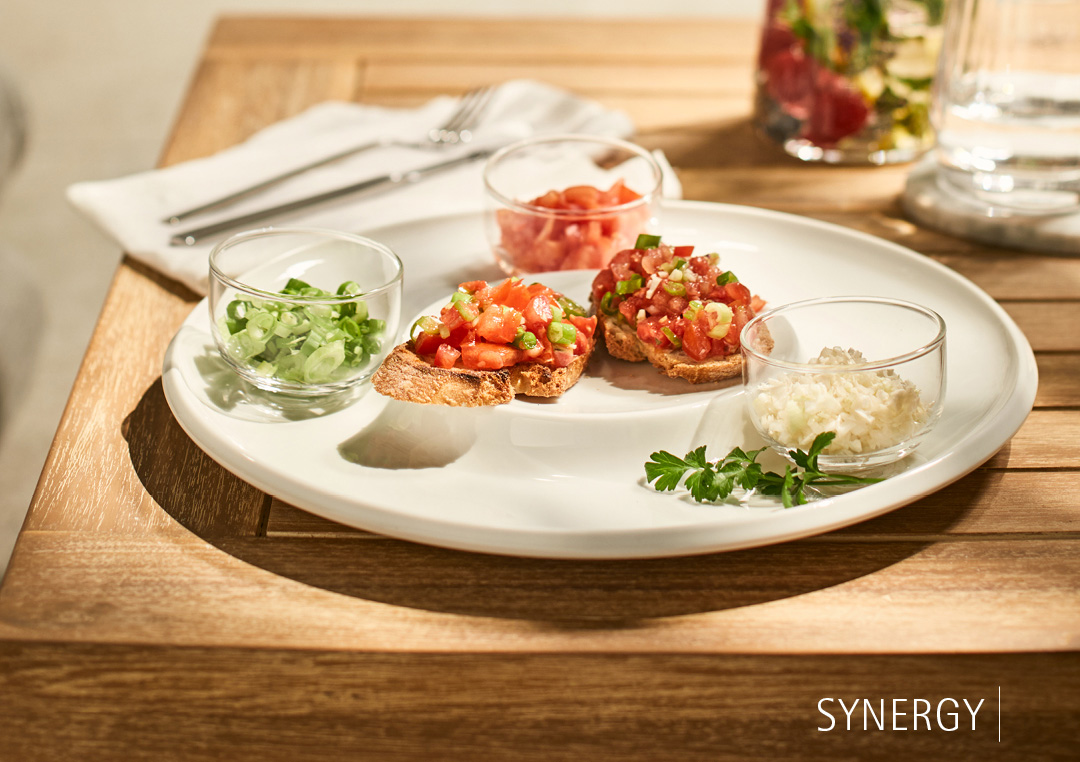1. Is "environmentally friendly porcelain" also a growing trend in the professional sector in terms of decision relevance?
AL: Porcelain tableware for the catering sector is generally very robust and durable and therefore sustainable. As a rule, porcelain is the basis - and if it can also be used flexibly, long life cycles are a given from the outset.
2. With which design aspects and materials does the new porcelain take into account the growing ecological awareness?
AL: The basis of the SYNERGY collection is timeless, extremely multifunctional and flexible in use. This clarity makes it easy to combine with different designs, such as the signature items or STYLE LIGHTS, over a long period of time. New designs can also be inserted without any problems. As a result, SYNERGY can be re-staged again and again despite longer periods of use, and remains attractive and lively. The expandability and the resulting variety of options are in great demand among restaurateurs. All this counteracts rapid interchangeability and ensures sustainability.
3. How does the new collection fit into WMF's sustainability concept?
AL: Porcelain is sustainable in itself. That's because porcelain is made from only a few natural raw materials. High-quality porcelain is therefore already environmentally friendly and sustainable in its creation process. It was also very important to WMF Professional that SYNERGY is actually manufactured in Germany and thus rightly bears the "Made in Germany" seal. Of course, the idea of sustainability, availability and short distances also played a major role h










